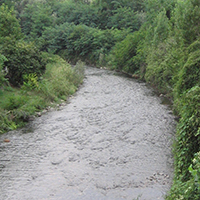Presence of carbepenemase-producing Enterobacteriaceae in the River Lambro basin, Italy: might sediment represent an important resistance reservoir?

Accepted: 2 July 2021
HTML: 21
All claims expressed in this article are solely those of the authors and do not necessarily represent those of their affiliated organizations, or those of the publisher, the editors and the reviewers. Any product that may be evaluated in this article or claim that may be made by its manufacturer is not guaranteed or endorsed by the publisher.
Authors
In the last years, the rapid spread in anthropized ecosystems of pathogens which are resistant to carbapenem antibiotics has raised great concern. In this study, KPC-producing Klebsiella pneumoniae was found in the River Lambro in June 2019, whereas KPC-producing Klebsiella oxytoca and Citrobacter braakii were identified in untreated wastewaters. Susceptibility profiles indicated resistance to imipenem, ertapenem and meropenem. Different carbapenamase genes (blaKPC, blaNDM, blaVIM, blaOXA-48) were also found in the River Lambro, although not associated to living bacteria. The presence of a wide set of carbapenemase genes and resistant pathogens show that river sediments could act as a reservoir of antibiotic resistance potentially threatening human health.
How to Cite

This work is licensed under a Creative Commons Attribution-NonCommercial 4.0 International License.

 https://doi.org/10.4081/jlimnol.2021.2029
https://doi.org/10.4081/jlimnol.2021.2029



